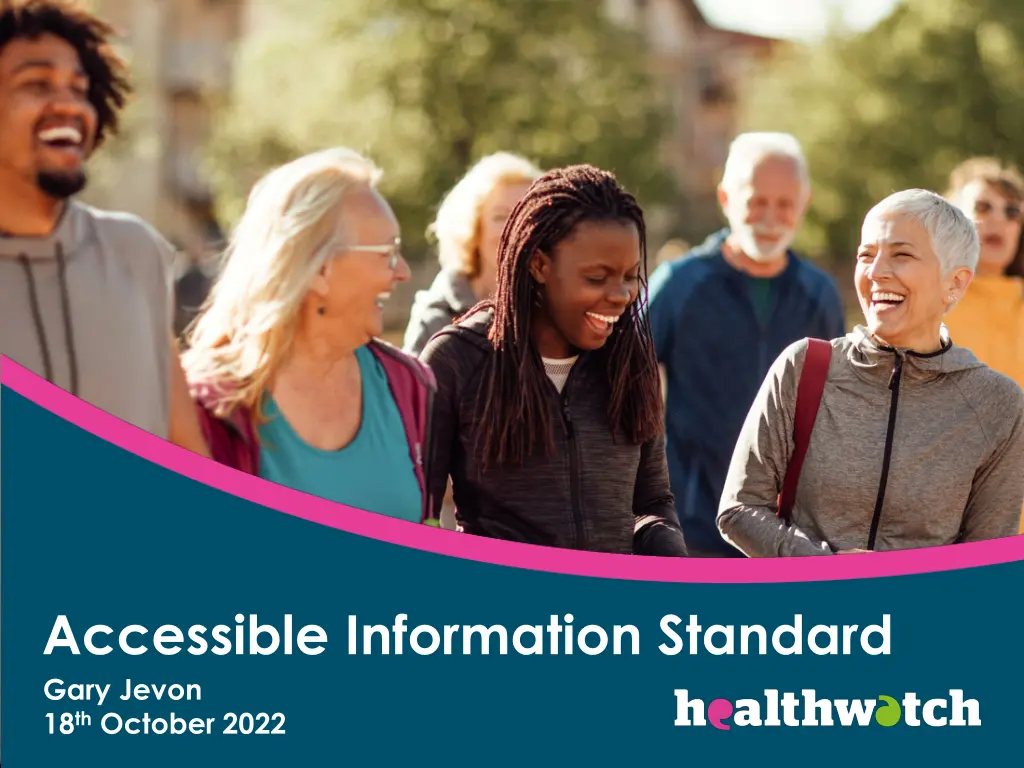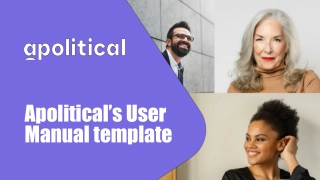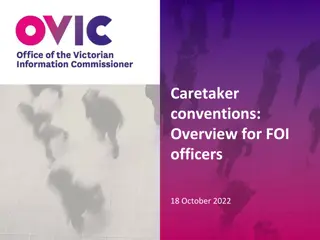
Addressing Health Inequalities through Accessible Information Initiatives
Learn about the challenges and progress in reducing health inequalities through accessible information initiatives. Discover how organizations are working to improve patient care and reduce disparities in healthcare access.
Download Presentation

Please find below an Image/Link to download the presentation.
The content on the website is provided AS IS for your information and personal use only. It may not be sold, licensed, or shared on other websites without obtaining consent from the author. If you encounter any issues during the download, it is possible that the publisher has removed the file from their server.
You are allowed to download the files provided on this website for personal or commercial use, subject to the condition that they are used lawfully. All files are the property of their respective owners.
The content on the website is provided AS IS for your information and personal use only. It may not be sold, licensed, or shared on other websites without obtaining consent from the author.
E N D
Presentation Transcript
Accessible Information Standard Gary Jevon 18thOctober 2022
Reducing Health Inequalities The facts: Of 139 hospitals who responded to a recent FOI request, only 1/3rd said they met ALL the requirements of the Standard: 53% said they asked patients and carers about their accessible needs only 36% said they had assessed their compliance over the last 3 years There is a crisis in adult literacy that directly impacts on people s health. In the UK 7.1 million adults read and write at or below the level of a nine-year old and, critically, 43% of adults do not understand written health information. 2
Reducing Health Inequalities The challenges: Information Technology: There are over 100 clinical IT systems at Mid-Yorkshire Hospitals Not all of these systems interface with each other Whilst not unique to Mid Yorks (this is an issue across the NHS as a whole), this means that the Trust are unable to readily share information on a patient s accessible need 3
Reducing Health Inequalities What have we done so far: Work with AIS leaders at MYHT: Head of Diversity and Inclusion Senior Programme Manager for AIS Senior Responsible Officer Aims and objectives: Better patient experience Informed choice Faster and appropriate patient care Reduce Health Inequalities 4
Reducing Health Inequalities What have we done so far: New work streams set up across the Trust Created AIS Purple promise : champions, posters, screensavers Developed a training package for all staff which has started with Champions Increased availability of BSL training for front line staff Revised communications strategy developing videos (e.g. CEO / Chief Nurse / Matron for Ophthalmology, all using a BSL interpreter and captions); Website development; social media accounts. Patient Knows best developing educational material/letters Sensory Impairment Insights Group led by Healthwatch CEO 5
Reducing Health Inequalities What have we done so far: Development and implementation of interoperable IT systems which can record AIS need Development of AI solution so that all systems will interface and talk Developed partnerships with other organisations and included those with an accessible need in developing: Staff Guides The AIS Policy Literature which is sent to patients/carers Easy Read information (Easy Read UK) 6
Reducing Health Inequalities What have we done so far: 7
Lessons Learned Working with stakeholders: Create an evidence base (e.g. patient feedback and intel, case studies) and use it! Identify, analyse and prioritise stakeholders Encourage stakeholders to communicate with each another as well as with you Seek to understand the stakeholders points of view (listen and ask questions, and seek compromises) Lead with transparency and build trust 8
Lessons Learned Working with stakeholders: Commit to an agreed engagement schedule Communicate Communicate Communicate! Especially as soon as possible with your stakeholders when things change. Use the most effective channels too. Collaborate, don t dictate; work with your team and the wider communities Strive to set the right expectations from the start Show your gratitude for all they do in your project 9
For more information Healthwatch Wakefield The Plex Margaret Street Wakefield WF1 2DQ www.healthwatchwakefield.co.uk t: +44 (0) 1924 787379 e: enquiries@healthwatchwakefield.co.uk @HealthwatchE Facebook.com/HealthwatchWakefield






















